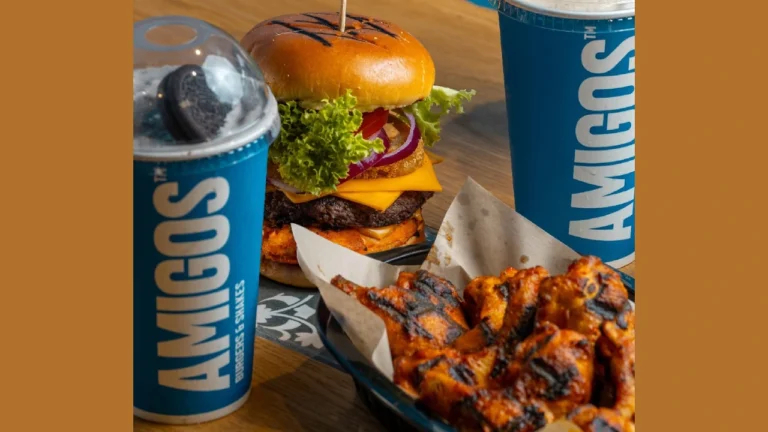Fast Food Chains’ Contribution to the South African Economy
Fast food has become an important part of everyday life in South Africa. These quick and tasty meals are loved by many people. But beyond just satisfying hunger, fast food chains play a big role in the South African economy. Let’s explore how popular fast food chains contribute to the economy and which ones are the most popular in the country.
Popular Fast Food Chains in South Africa
1. KFC (Kentucky Fried Chicken)
KFC was one of the first international fast-food chains to come to South Africa, opening its first restaurant in 1971. This fast food chain is famous for its crispy fried chicken, and there are now more than 900 KFC outlets across the country. Knowing the KFC Menu with latest prices in South Africa is important to order the food at your doorstep.
2. McDonald’s
McDonald’s opened its first restaurant in South Africa in 1995. Known for its burgers, fries, and Happy Meals, McDonald’s has over 250 outlets in South Africa today.
3. Steers
Steers is a local South African brand that started in the 1960s. It is famous for its flame-grilled burgers and delicious milkshakes. Steers has become a favorite among many South Africans.
4. Nando’s
Nando’s is another homegrown success story. Starting in 1987, Nando’s is famous for its peri-peri chicken, which is marinated in a spicy sauce. Nando’s has grown to have a presence not just in South Africa but around the world.
5. Burger King
Burger King entered the South African market in 2013. Known for its flame-grilled Whopper burgers, Burger King has quickly gained popularity.
How Fast Food Chains Contribute to the Economy
1. Job Creation
One of the biggest contributions of fast food chains to the economy is job creation. Each fast food outlet needs staff to run it. This includes cooks, cashiers, managers, and cleaners. With hundreds of outlets across the country, these chains provide thousands of jobs. This is especially important in a country like South Africa, where unemployment can be high.
For example, KFC, with over 900 outlets, employs thousands of people, and among its 900 branches, most of them serve the breakfast menu of KFC in South Africa. McDonald’s, with its 250 outlets, also provides jobs for many South Africans. These jobs help people earn a living and support their families.
2. Training and Skills Development
Fast food chains also contribute to the economy by offering training and skills development. Employees often receive training in various areas, such as customer service, food safety, and management. This training helps them develop valuable skills that can be used in other jobs as well.
For instance, McDonald’s has a strong training program that helps employees learn important skills. This can include anything from learning how to cook food properly to managing a team. These skills can be useful in many other industries, helping workers advance in their careers.
3. Supporting Local Suppliers
Fast food chains need a lot of ingredients to make their food. They often buy these ingredients from local suppliers. This includes vegetables, meat, dairy products, and more. By purchasing from local farmers and suppliers, fast food chains help support other businesses in South Africa.
For example, Nando’s buys many of its ingredients from local farmers. This helps the farmers earn money and grow their businesses. When local suppliers do well, they can hire more people, which further helps the economy.
4. Paying Taxes
Fast food chains also contribute to the economy by paying taxes. These taxes are used by the government to provide public services like schools, hospitals, and roads. The more successful the fast food chains are, the more taxes they pay.
For instance, big chains like KFC and McDonald’s pay a lot of taxes because they have many outlets and make a lot of money. These taxes are important for the country’s development and help improve the quality of life for everyone.
5. Franchising Opportunities
Many fast food chains operate through a franchising model. This means that individual entrepreneurs can buy the right to open and run a restaurant under the chain’s brand. This helps local business owners start their own businesses, contributing to the economy.
For example, many KFC and McDonald’s outlets are owned by local franchisees. These franchisees invest their money to open the restaurant and then hire local staff to run it. This creates more jobs and helps grow the local economy.
6. Boosting the Hospitality Industry
Fast food chains also boost the hospitality industry. They attract tourists who are looking for familiar food options while visiting South Africa. This is especially true for international chains like McDonald’s and Burger King.
When tourists visit these fast food outlets, they spend money, which supports the economy. Additionally, these chains often collaborate with local hotels and travel companies, further boosting the tourism sector.
7. Encouraging Economic Development
The presence of fast food chains can encourage economic development in certain areas. When a new fast food outlet opens, it can attract other businesses to the area. This can include retail stores, entertainment options, and other restaurants.
For example, when a new KFC opens in a neighborhood, it can draw more people to the area. This can lead to other businesses opening nearby, creating a more vibrant and economically active community.
Challenges and Considerations
While fast food chains contribute significantly to the economy, there are also challenges and considerations to keep in mind.
1. Health Concerns
Fast food is often high in calories, fat, and sugar. Eating too much fast food can lead to health problems like obesity, diabetes, and heart disease. This can put a strain on the healthcare system and affect people’s overall well-being.
2. Environmental Impact
Fast food chains can also have an impact on the environment. The production of fast food often involves a lot of packaging, which can lead to waste. Additionally, the farming practices used to produce ingredients can sometimes harm the environment.
3. Economic Inequality
While fast food chains provide jobs, these jobs are often low-paying. This can contribute to economic inequality, where some people earn a lot while others earn very little. It’s important for fast food chains to offer fair wages and good working conditions to their employees.
Conclusion
Fast food chains play a crucial role in the South African economy. They create jobs, support local suppliers, and pay taxes that help fund public services. Popular chains like KFC, McDonald’s, Steers, and Nando’s are loved by many and have become an important part of South African culture.
While there are challenges, such as health concerns and environmental impact, the contributions of fast food chains to the economy are significant. By providing training and skills development, supporting local businesses, and encouraging economic development, fast food chains help improve the lives of many South Africans.
As we enjoy our favorite fast food meals, it’s important to remember the role these chains play in our economy and to support them in ways that also promote health and sustainability.





